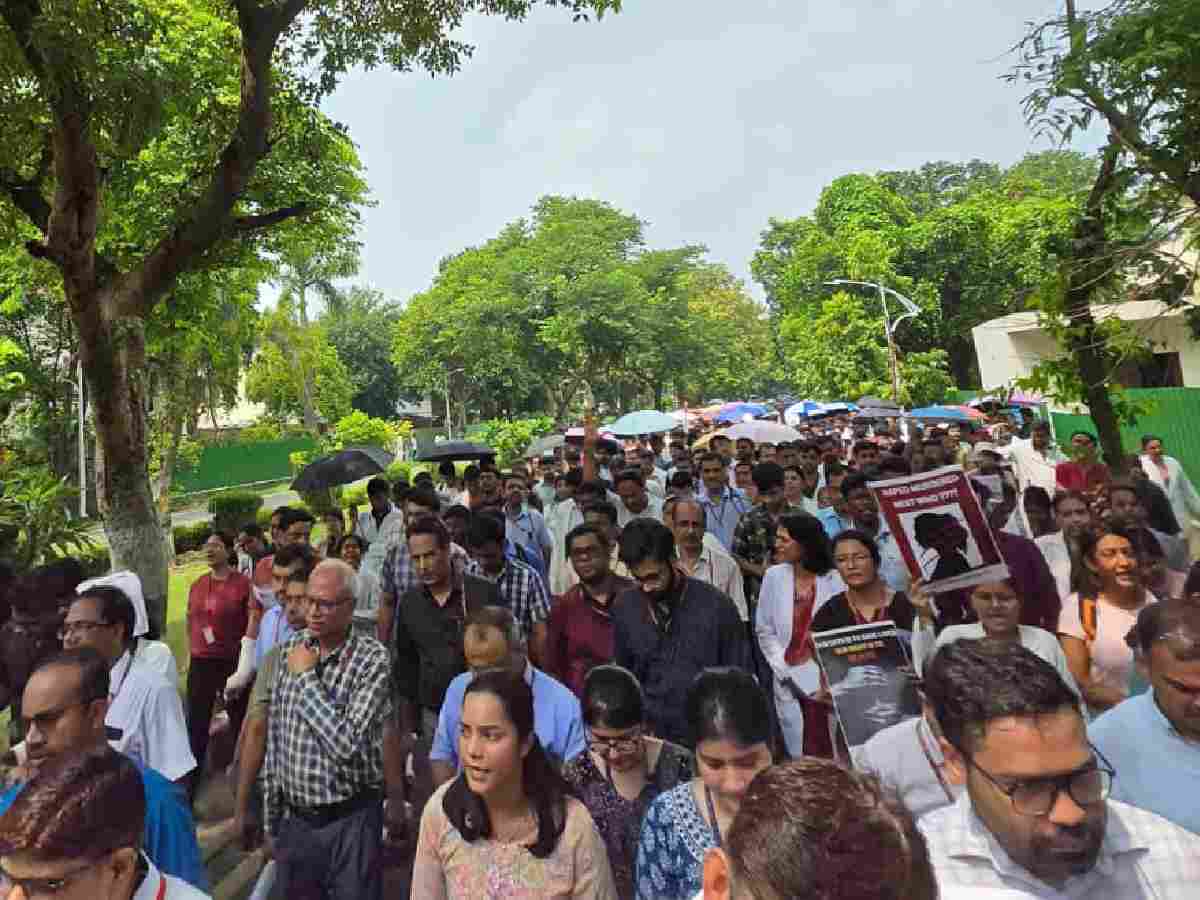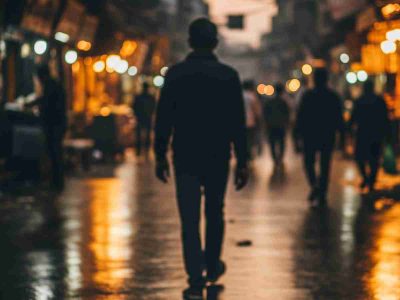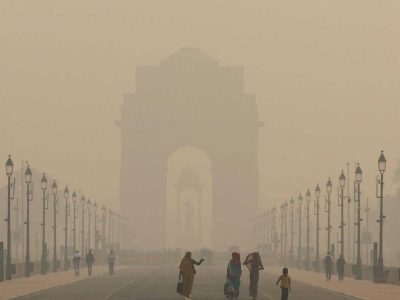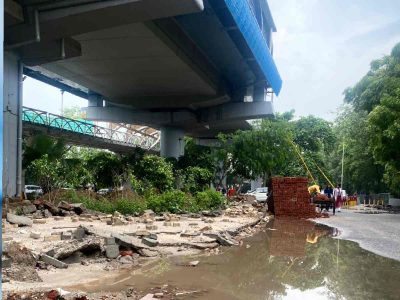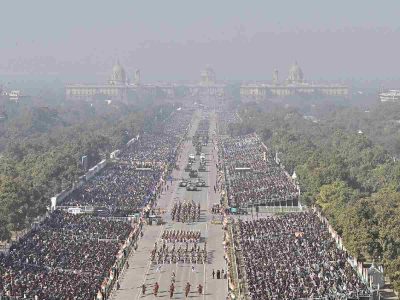Delhi: The ongoing indefinite strike by doctors in the wake of the rape and murder of a trainee doctor at RG Kar Medical College and Hospital in Kolkata on August 9 has left patients and their families in the national capital inconvenienced, as essential medical services like outpatient treatment and surgeries are either closed or minimally functional for the past few days.
Delhi, home to the most renowned and biggest government hospitals in the country, including the All India Institute of Medical Sciences (AIIMS), Safdarjung Hospital, Ram Manohar Lohia (RML) Hospital, and Lok Nayak Hospital (LNH), is witnessing protests from resident doctors who are demanding a safer working environment.
Stranded patients
Doctors from all government hospitals in the city have been on an indefinite strike since August 12. Medical services throughout Delhi were significantly disrupted on August 17, due to a 24-hour strike organised by the Indian Medical Association (IMA). The strike was called in response to the recent tragic incident involving the rape and murder of a doctor in Kolkata and aimed to support resident doctors who are advocating for better protection against violence. Both government and private hospitals were severely impacted, with many patients enduring long waits or leaving without receiving any treatment.
One patient, Tarun Goyal, a mechanical engineer, voiced his support for the striking doctors, saying, “The government needs to heed the concerns of doctors. Their demand for enhanced security measures is valid. If politicians can have personal security, why can’t there be laws to ensure doctors feel safe?”
Goyal also emphasised that the government should prioritise the well-being of patients, noting, “If the government hesitates to implement protective laws for health workers, they should at least ensure that patients don’t suffer because of it.”
While the need for doctors’ safety was widely acknowledged, some patients expressed concerns over the impact of the strike on healthcare services.
Anoop Sharma from Saket said, “Instead of striking, they should negotiate and find a resolution. The strike only prolongs the suffering of patients.”
The usually bustling private hospitals in Delhi were unusually quiet, with many patients waiting in empty corridors, hoping for medical attention. Dr Ajay Swaroop, chairman of Sir Ganga Ram Hospital, said, “We have completely suspended OPD, elective surgeries, and in-patient services. Unfortunately, such protests and work stoppages have become necessary to push the authorities to act swiftly and ensure that justice is served. We will continue to support the agitation until significant steps are taken to improve the safety and security of all healthcare workers.”
At the All India Institute of Medical Sciences (AIIMS), patient care was severely affected, with more than a 90% reduction in outpatient services, admissions, and surgeries. This significant decline was a direct result of the AIIMS faculty association joining the resident doctors in their strike.
Also Read: Kolkata doctor rape-murder case: Delhi AIIMS warns resident doctors against protest on campus
Dr Nishith Mittal, medical superintendent at the Indian Spinal Injuries Centre in Vasant Kunj, also reported a substantial impact: “We noticed a 60-70% drop in walk-in OPD patients due to the IMA’s strike. Patients with scheduled follow-up appointments were informed of the strike and had to either postpone or reschedule their visits.”
Aakash Healthcare’s managing director, Dr Aashish Chaudhry, announced that their OPDs were closed in solidarity with the nationwide strike. Similarly, Apollo Hospital supported the healthcare workers, stating, “We stand firmly with our healthcare professionals during this challenging time.”
Apollo closed its OPDs and postponed routine health check-ups, although emergency services remained operational and elective surgeries were rescheduled on August 17.
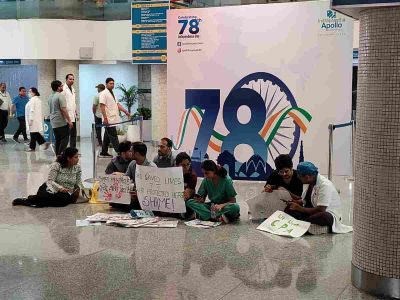
Across the city, many doctors limited their outpatient consultations to focus on emergency cases. A spokesperson for Fortis stated, “Despite the restricted availability of regular appointments, emergency services continued to operate. While limiting OPD access might inconvenience patients seeking routine check-ups, it ensures that those in need of urgent medical care receive the necessary attention.”
Delhi State Cancer Institute
Among the major hospitals, the Delhi State Cancer Institute was the worst affected, with all outpatient departments (OPDs) completely non-operational, leading to patients being denied crucial treatments like chemotherapy.
The strike has led to the cancellation of many scheduled surgeries. While some hospitals managed to keep minimal OPD services running, these were severely delayed. The Delhi State Cancer Institute, however, completely shut down its OPD services. This facility usually operates eight to nine OPDs daily, serving over 500 patients each day.
Karan Ahuja, a throat cancer patient referred to the institute, was turned away due to the unavailability of OPD services.
“He hasn’t been able to eat for the past few days, so we went to the hospital. But we had to return home because of the strike,” a family member told Patriot.
AIIMS affected
As far as the country’s biggest hospital is concerned, AIIMS, Delhi on August 14 recorded a 55% drop in OPD services compared to routine days, while operation theatre services fell by a whopping 85%. A drop of 20% and 40% was reported in laboratory tests and radiological interventions like X-rays and CT scans, respectively.
Also Read: ‘Don’t want to be next victim’: Delhi doctors march against Kolkata incident
AIIMS generally sees a footfall of 10,000 patients every day.
On August 13, AIIMS witnessed a dramatic 90% reduction in surgeries, following an 80% decrease the previous day. OPD services also suffered, with a 66% cut on August 13, compared to a 20% reduction on August 12. Hospital admissions dropped sharply, with a 65% decline on August 13, compared to a 35% decrease the day before.
Aman Khan, a 30-year-old man from Bihar, visited AIIMS for a biopsy on August 14 but couldn’t undergo the procedure.
“I had been waiting here for four hours, following which I got to know about the cancellation of my surgery. I belong to a middle-class family, so I can’t afford to visit the facility frequently. Now, I have no place to go,” Khan said.
Another patient from UP’s Bareilly had her leg surgery at AIIMS cancelled on August 13. Diagnosed with neuroblastoma, the delay has added to her and her family’s distress.
Disruption at Lok Nayak Hospital
Lok Nayak Hospital reported a 30% reduction in surgeries and nearly a 50% drop in the number of patients treated in the OPD.
“A total of 3,568 patients were attended to in the OPD on Tuesday, and 35 surgeries were conducted. Normally, 7,000 patients visit the OPD,” the hospital administration stated, highlighting the significant impact of the protest on daily operations and patient care.
A similar scene unfolded at Safdarjung Hospital and Ram Manohar Lohia (RML) Hospital, where OPD registration was severely impacted due to the ongoing doctors’ strikes over the last few days.
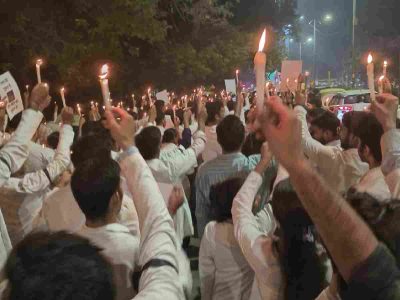
Resident doctors at major government hospitals across the Capital, including AIIMS, Safdarjung, and RML, continue to halt all elective services. This defiance came despite warnings from hospital administrations against conducting protests on hospital premises.
The decision to persist with the strike occurred even as the Federation of Resident Doctors’ Associations of India (FORDA), which had initially called for a nationwide strike, called it off after a meeting with Union Health Minister JP Nadda on August 13.
In a statement following the decision to end the strike, FORDA highlighted that a key outcome of the meeting was the health minister’s agreement to form a committee, with FORDA’s involvement, to work on the Central Protection Act for healthcare workers.
“The ministry has assured that work on this will begin within the next 15 days,” FORDA stated.
The association added that the decision to end the strike, effective from August 14 morning, was taken keeping in mind the welfare of patients.
Despite FORDA’s decision to call off the strike, individual Resident Doctors’ Associations (RDAs) and the Federation of All India Medical Association (FAIMA) have resolved to continue their protest until they receive a written assurance from the government to adopt a Central Healthcare Protection Act.
According to a source who spoke on condition of anonymity, an official notice from the health ministry regarding the formation of a committee to oversee this act is expected soon.
“The committee will focus on the timely implementation of the Act, aimed at ensuring a safer working environment for healthcare workers. Meetings for this initiative are set to commence within the next two weeks, with FORDA forming a delegation to participate,” FORDA stated.
The horrific incident
Protests erupted nationwide following the rape and murder of a 31-year-old resident doctor in Kolkata. Her semi-nude body was discovered on August 9 in the seminar hall of RG Kar Medical College. The trainee doctor, who had just completed a 36-hour shift, had gone to rest, only to be found murdered the next morning.
The victim suffered multiple injuries, including a broken neck bone. An autopsy confirmed that she had been sexually assaulted and murdered. Kolkata police have arrested Sanjay Roy, a hospital volunteer, for the crime.
On August 13, the Calcutta High Court ordered Kolkata police to hand over all case files to the Central Bureau of Investigation (CBI).
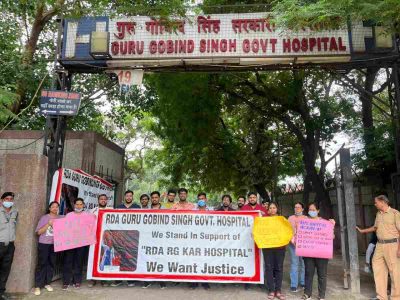
Grim details have surfaced in the investigation. The post-mortem report reveals that the perpetrator struck her so violently that her spectacles shattered, causing shards of glass to embed in her eyes.
The post-mortem, provided to the victim’s family by Kolkata Police on August 12, also disclosed that she suffered multiple injuries, including deep cuts on her hands and face.
It also confirmed that the injuries were inflicted while the doctor was still alive, with evidence of sexual assault. The report further indicates that the perpetrator killed her by throttling and smothering her after this brutal attack. The estimated time of death is between 3 am and 5 am on Friday.
The four-page report detailed extensive injuries, including severe bleeding from her private parts and multiple injury marks across her body.

